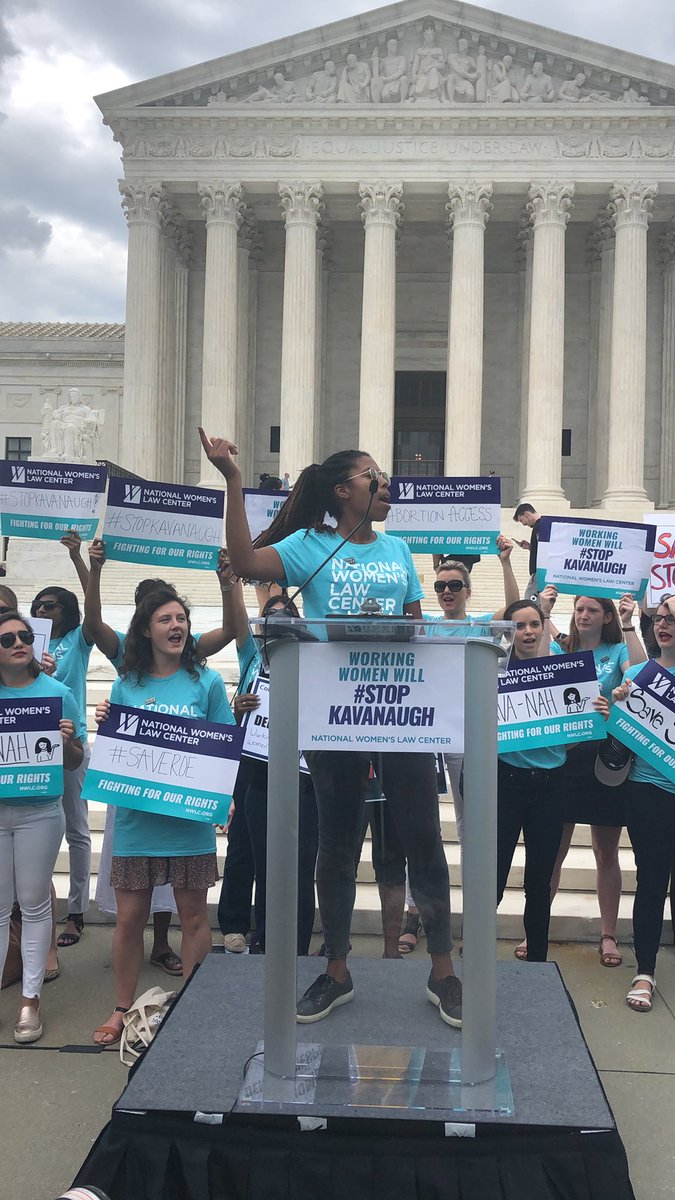Abortion rights, women of color, and LGBTQI+ people are under attack. Pledge to join us in fighting for gender justice.
Senate Judiciary Committee Ensures That It Cannot Do Its Job


The Senate Judiciary Committee, as its name suggests, has a critically important role in the Senate’s constitutional responsibility to provide advice and consent on Article III judicial nominations. It holds hearings intended to explore the records of judicial nominees, designed to allow Senators on the Committee to ask questions to further the consideration of those nominees, to determine whether they are fit to be confirmed by the full Senate to lifetime positions on the federal bench. The Committee also has jurisdiction over key nominations to the Department of Justice. All critical responsibilities that Committee Chair, Senator Chuck Grassley, purports to take seriously.
Yet Senator Grassley has effectively ensured that the Committee cannot fulfill these responsibilities, by packing the agenda for a nominations hearing today with four judicial nominees, including two highly controversial circuit court nominees, and the nominee to head the Department of Justice’s Civil Rights Division, who is tasked with enforcing some of the nation’s most important constitutional and statutory protections. To say that jamming this many nominees into one hearing provides insufficient time to adequately explore their records is a ludicrous understatement. Amy Coney Barrett, nominated to an Indiana seat on the Seventh Circuit Court of Appeals, is a law professor with a decade’s worth of controversial writings on legal precedent, the role of judges, and an originalist approach to interpreting the Constitution and statutes – and, in her limited litigation experience, representation of George W. Bush on the Bush v. Gore case. Joan Larsen, currently a justice on the Michigan Supreme Court and nominated to a seat on the Sixth Circuit Court of Appeals, worked as a deputy assistant attorney general in the Office of Legal Counsel in the Department of Justice during the Bush Administration. “During Larsen’s time at OLC, other lawyers in the office authored memos that provided advice on and justification for interrogation techniques such as waterboarding and sleep deprivation.” Although Larsen has denied participating in those memos, they are classified, and while she apparently wrote memos related to the legal rights of detainees, those memos have not been made public. And Eric Dreiband, nominated to head the Civil Rights Division at the Department of Justice, repeatedly has advocated for positions that would limit women’s equality and opportunity, specifically with regard to crucial sex discrimination protections enforced by the Civil Rights Division. Moreover, he has consistently made efforts to narrow the scope of anti-discrimination laws, and repeatedly expressed hostility to broad civil rights enforcement authority and important enforcement tools.
As one former Obama Administration official explained: “It has long been the practice of the Senate Judiciary Committee to consider only one circuit court nominee per nomination hearing. Exceptions are rare and usually have extenuating circumstances: the Judiciary Committee held hearings for more than 60 of President Obama’s circuit court nominees, and held a hearing with two circuit court nominees only three times—each time with the support of the minority party.” To add two district court nominees, along with the nomination of the Department of Justice official charged with enforcing key laws that protect core constitutional rights and protections against invidious discrimination, essentially forecloses meaningful consideration. This not only represents a dereliction of the Committee’s responsibilities, but also complete disregard for the people across the nation whose rights and safety are at risk when executive and judicial nominees are effectively rubber-stamped.
We deserve better when our rights are at risk. Chairman Grassley should schedule three hearings, rather than cram these five nominees into one.





